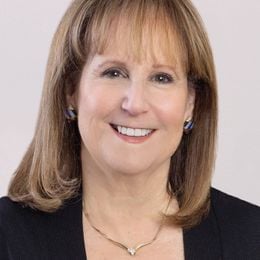Why Young People Need to Look at Older People Differently
This Next Avenue Influencer in Aging says it's time for a reframing
Editor’s note: This article is part of Next Avenue’s 2015 Influencers in Aging project honoring 50 people changing how we age and think about aging.
As we grapple with the myriad challenges posed by America’s large, aging population, there is one potential change that would cost nothing but could make an extraordinary difference. That is: reframe the lens through which young people see those who are older.
This may not be as unrealistic as it sounds. Throughout history, elders in the community were treated with respect, revered as wise sources of advice resulting from their life experiences. The shift in that perspective is more recent and is now constantly reinforced by stereotypes which glorify youth and reduce older people to caricature. It is as if our culture is complicit in contributing to the generational divide, keeping stereotypes alive, and furthering misperceptions in how we view each other.
Stereotypes Everywhere
Examples are simple to find. Television shows often depict the older relative as doddering and feeble, available for an occasional wisecrack or as the target of a young person’s joke. Movies generally ignore anyone over 40, as producers apparently assume that the demographic range of most moviegoers is between the ages of 10 and 30.
The failure to include older people in TV and movies is a particular missed opportunity when you consider the collective economic power of the boomers. They might prefer to see themselves depicted in accordance with how the vast majority see themselves: vibrant, reasonably healthy, and still capable of loving and intimate relationships. Instead, the over-50 crowd that TV viewers are exposed to — particularly in commercials — are generally suffering from various forms of dysfunctional body parts requiring an abundance of medication whose side effects are listed in excruciating detail, further solidifying the image of weakness.
If you ask those into their fifth decade of life or more what they find to be their most challenging adjustment as they age, the response will often focus on their feelings of invisibility. In a culture that glorifies youth, it is difficult to feel like you matter when you don’t feel you are seen.
False Images
Throughout most of my adult life, when confronted with a younger person demonstrating arrogance or disdain towards someone older, I found myself imagining what that person will be like in his or her senior years, wondering whether there will be loving family helping to provide care or whether there will be any future regret for their younger self’s failure to appreciate and respect the continuum of life.
What a difference it could make if everyone were self-aware enough to see that no one is excluded from life’s inevitable cycles.
How different our lives could be if we all understood how foolish it is to perpetuate stereotyped notions of a person’s value based, in large measure, on age.
The lines are blurring between what was once considered “middle aged” and what is considered to be “elderly." As people live longer, and spend more time and effort on a healthier aging process, they expect — even need — their value to be recognized and their talents to be appreciated.
No one benefits from stereotypes that perpetuate false images. We all lose when we choose to ignore those whose longer life experiences offer important life lessons. And we do not escape the aging process by pretending older people do not exist. “If I ignore it, then it cannot happen to me” is not a life mantra that changes outcomes.
So if I could change one thing about aging in America, it would be that we put an end to the “isms” that interfere with our ability to respect what each generation has to offer. We would recognize the aging process as an inevitable part of living, and our culture would embrace each generation for its unique contributions.
There is beauty in life’s complexities that is diminished by simplistic and false assumptions about who we are based on how long we have lived.


